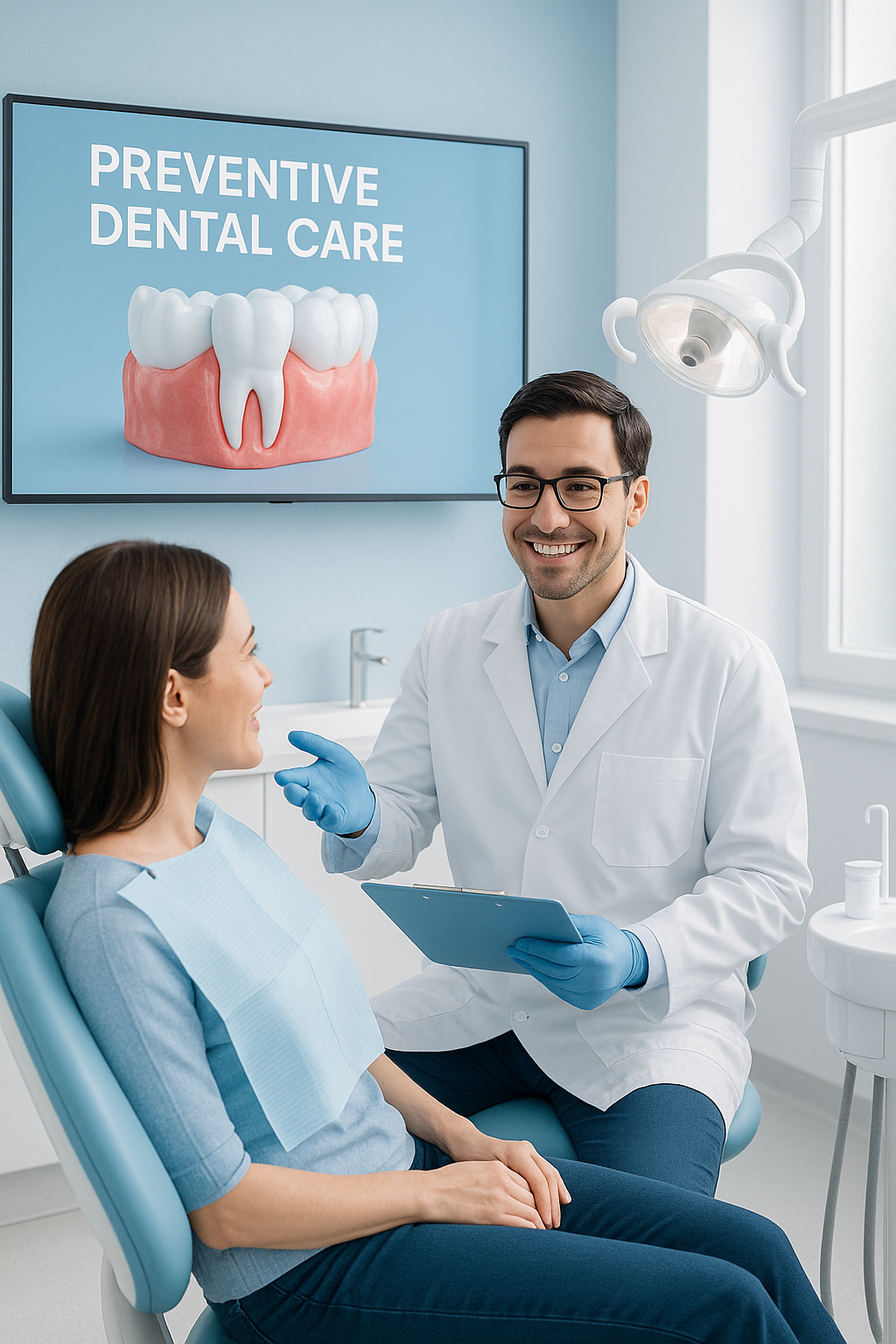A healthy smile is not just about aesthetics—it’s a reflection of overall health. Preventive dentistry focuses on protecting your teeth and gums before problems arise. By adopting proactive habits and visiting your dentist regularly, you can reduce the risk of cavities, gum disease, and other dental issues while saving money on future treatments.
What Is Preventive Dentistry?
Preventive dentistry is the practice of maintaining oral health to avoid the development of serious dental problems. It includes professional care, such as dental cleanings and check-ups, as well as personal care, like brushing, flossing, and healthy nutrition.
The goal is simple: stop problems before they start.
Why Preventive Dentistry Matters
- Saves money in the long run: Regular check-ups are less costly than treating advanced decay, root canals, or extractions.
- Promotes overall health: Oral health is linked to systemic conditions such as diabetes, heart disease, and respiratory issues.
- Preserves natural teeth: Early prevention helps avoid tooth loss.
- Improves quality of life: A healthy smile boosts confidence, speech, and proper nutrition.
Core Elements of Preventive Dentistry
1. Regular Dental Check-Ups
Dentists can detect early signs of cavities, gum disease, or even oral cancer before they become serious. Most patients benefit from a check-up every 6 months.
2. Professional Dental Cleanings
Even with proper brushing, plaque and tartar build up over time. Professional cleanings help remove deposits that lead to gum disease and bad breath.
3. Daily Oral Hygiene
- Brushing: Twice a day with fluoride toothpaste.
- Flossing: At least once a day to remove plaque between teeth.
- Mouthwash: Antibacterial rinses reduce bacteria and freshen breath.
4. Healthy Lifestyle Choices
- Limit sugar and acidic foods.
- Stay hydrated with water instead of sugary drinks.
- Avoid smoking and excessive alcohol, both of which damage oral tissues.
5. Preventive Treatments
- Dental sealants: Thin coatings applied to molars to prevent cavities.
- Fluoride treatments: Strengthen tooth enamel and reduce decay.
- Custom mouthguards: Protect against sports injuries and nighttime grinding.
Preventive Dentistry for Different Age Groups
Children
Early prevention helps build a foundation for lifelong oral health. Pediatric dentists often recommend sealants and fluoride treatments for kids.
Adults
Regular check-ups and professional cleanings are crucial. Adults should also watch for signs of gum disease, which is the leading cause of tooth loss.
Seniors
Preventive care in older adults focuses on maintaining natural teeth, managing dry mouth, and preventing root decay.
The Link Between Oral and Overall Health
Scientific research has shown strong connections between oral health and systemic conditions such as:
- Heart disease: Gum inflammation can contribute to cardiovascular problems.
- Diabetes: Poor oral health can worsen blood sugar control.
- Pregnancy complications: Gum disease is linked to premature birth and low birth weight.
This makes preventive dentistry not just about saving your smile—but also protecting your body.
Conclusion
Preventive dentistry is an investment in your health, confidence, and future. By combining professional care with daily habits, you can enjoy a healthy smile for a lifetime.
✨ Don’t wait until problems appear—schedule your preventive check-up today and take the first step toward a brighter, healthier future.
